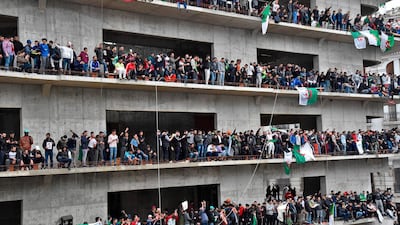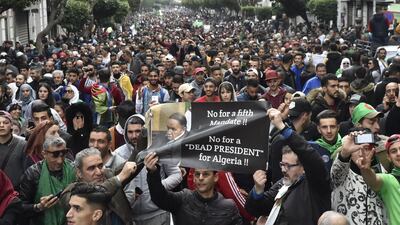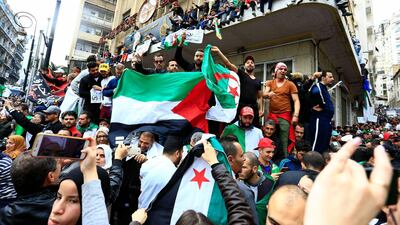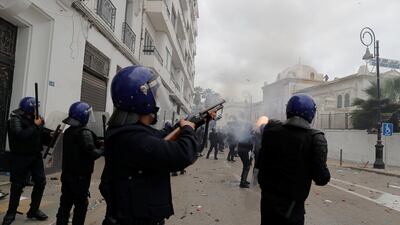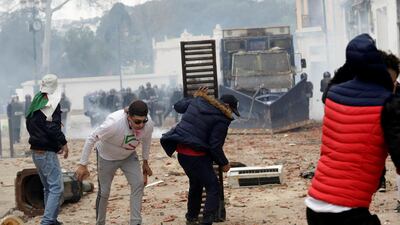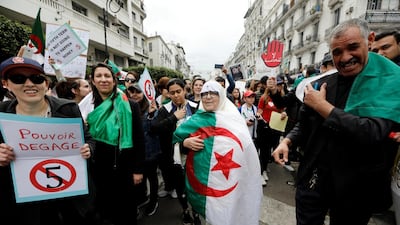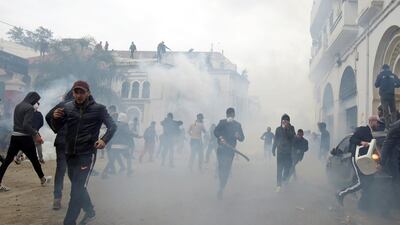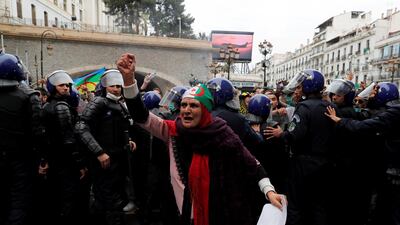President Abdelaziz Bouteflika touched down outside the Algerian capital on Sunday evening as he returned from medical checks in Switzerland to mass protests against his planned fifth term.
Local station Ennahar TV said Mr Bouteflika’s plane landed at Boufarik military airport, southwest of Algiers. He returns from Geneva where he has been undergoing medical checks since February 24.
After suffering a stroke in 2013, Mr Bouteflika has rarely been seen in public. But the president faces a major challenge to his bid for a fifth term as thousands have staged near-daily protests for the past two weeks.
Last week, several MPs quit and joined the protest movement demanding Mr Bouteflika calls time on his 20-year reign.
Although many respect the long-serving leader for his role in ending the civil war in the 1990s and bringing the country together after the conflict, the protesters say it is time for new leadership.
In the clearest indication yet that the military is sympathetic to the people’s demands, the chief of staff said on Sunday that the army and the people had a united vision of the future.
Lt Gen Gaed Salah did not mention the protests in his statement.
The ruling FLN party urged all sides to work together to end the political crisis, Ennahar TV reported.
But there are no signs Algerians are prepared to heed that call after rejecting Mr Bouteflika's offer to limit his term after the election.
Aziz, a student, told Reuters that Mr Bouteflika was welcome to come home “but we do not need him at the presidency”.
More protests took place across the country again yesterday with many people carrying Algerian flags as shops were closed and train services came to a halt.
Through the mid-2000s, Mr Bouteflika embarked on a major development plan funded by proceeds of the country’s large oil and natural resources.
However, many of the country's under-30s are still unemployed and, after oil prices fell earlier this decade, the government was saddled with a costly subsidy programme it is struggling to maintain.
Over 20 per cent of the state budget is now used to cover the costs of the government handouts.
Of particular concern is the gradual decline in the petroleum sector due to underinvestment and dwindling reserves as well as the inability of the government to translate hydrocarbon wealth into a diverse economy.
The protests have drawn a cross section of society with families, the elderly and children attending. Police have focused on crowd control, arresting only those escalating the conflict. However, in the evenings as many protesters start to head home, young men have clashed with officers.
Given Mr Bouteflika's ability to bring the country together after the war and provide stability, many accepted a situation with little space for public dissent. The latest protests appear to have ended this status quo.
The president’s team official submitted his candidacy for a fifth term on March 3, despite his absence. The fact that it took place while he was in Switzerland undergoing treatment, bolstered detractors' claims that Mr Bouteflika is an unfit candidate for the April 18 election.
Despite the apparent desire for fresh leadership, the opposition remains weak and fractured, making it unlikely that they can capitalise on the protest movement.
In response to the concerns, a letter from the president that was read out on national television by his campaign chief promised reforms and said he would not complete his term if elected.
Mr Bouteflika said they would convene a national conference and within a year hold elections in which he would not take part.
The response from his opponents was curt. "Return to sender" read the headline in a commentary on the letter in the daily El Watan.
